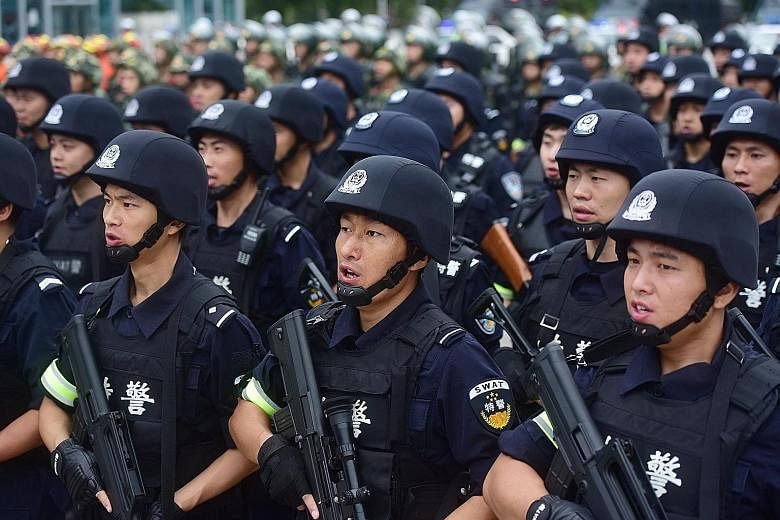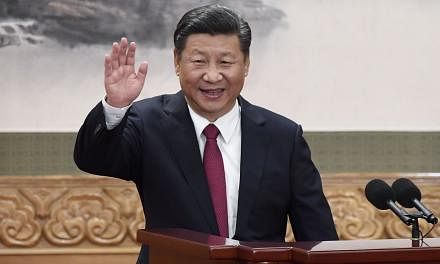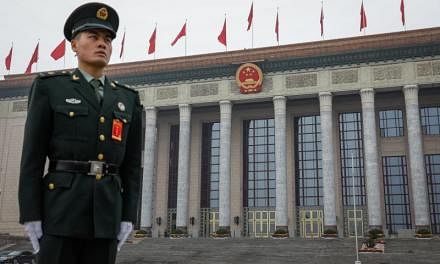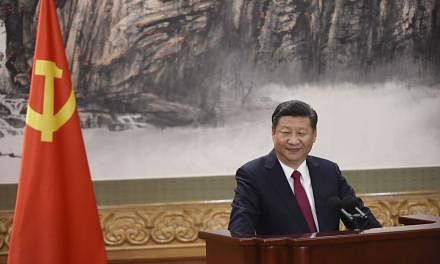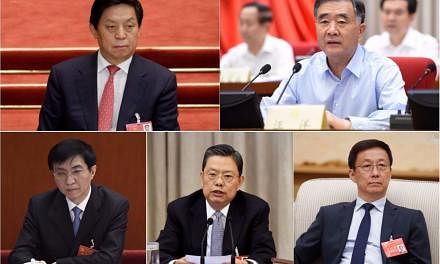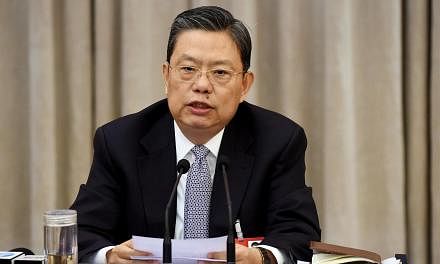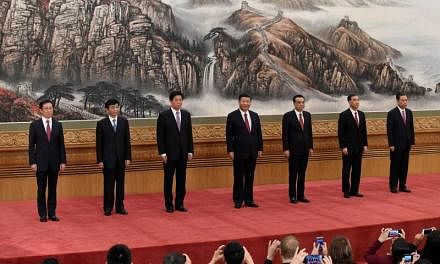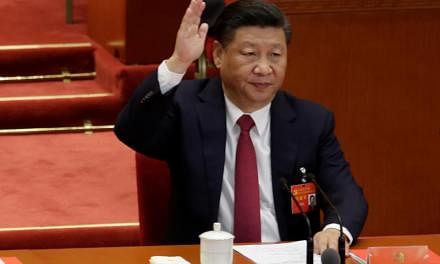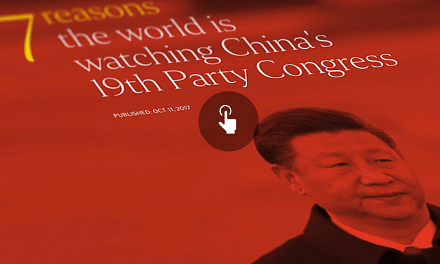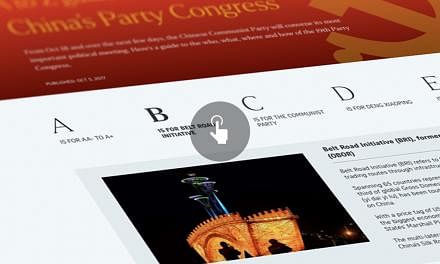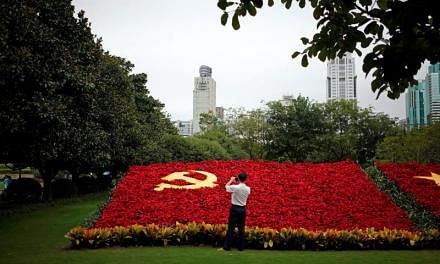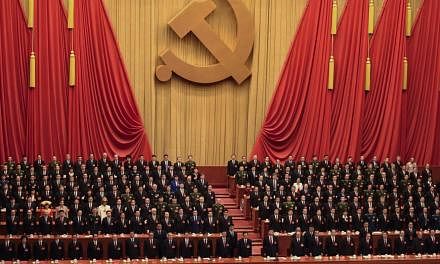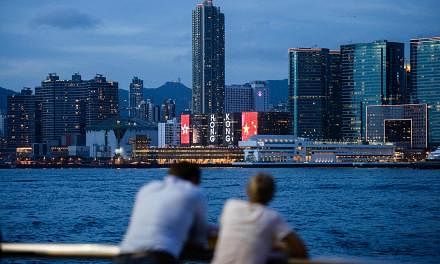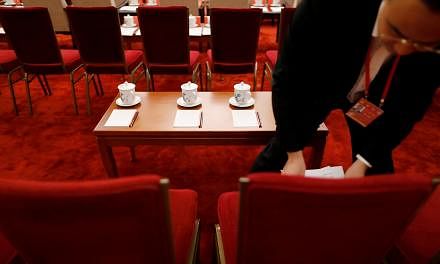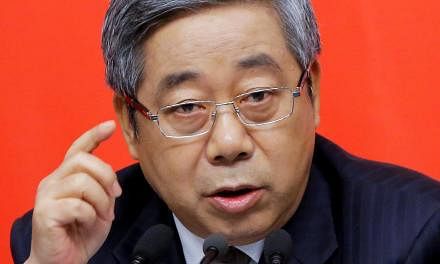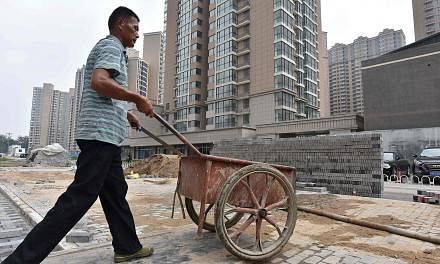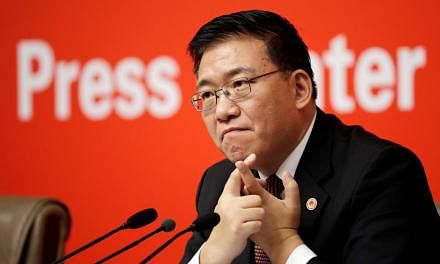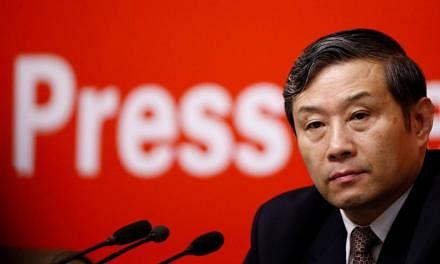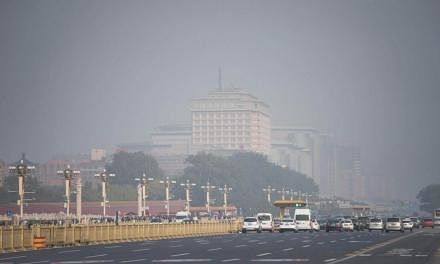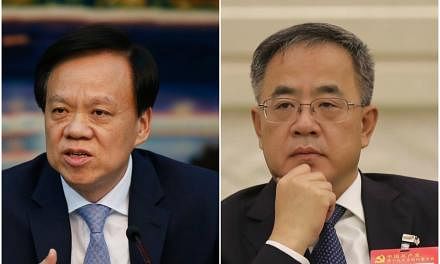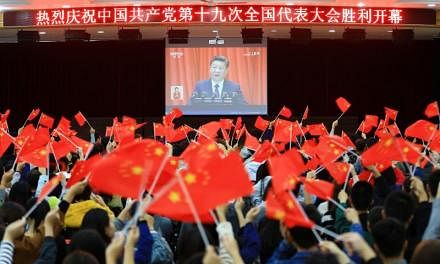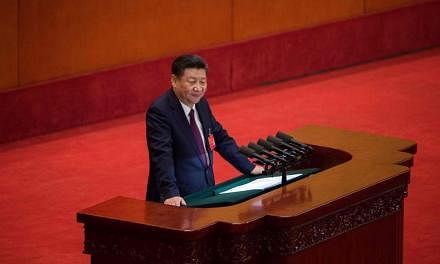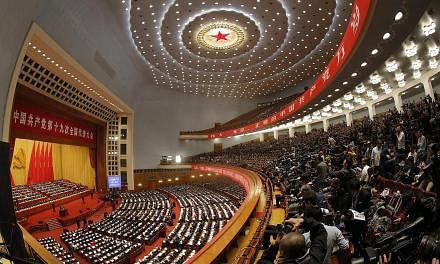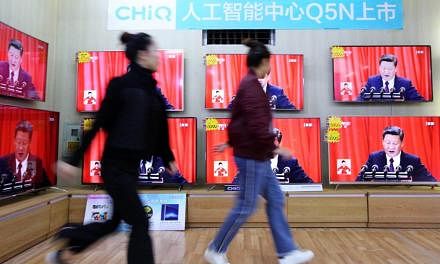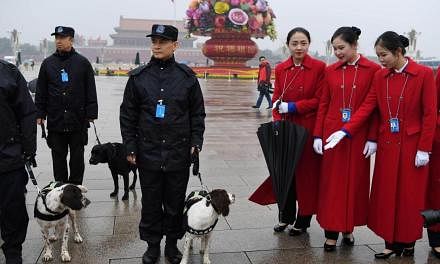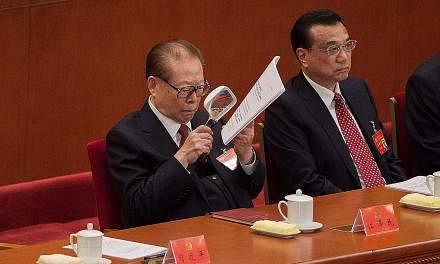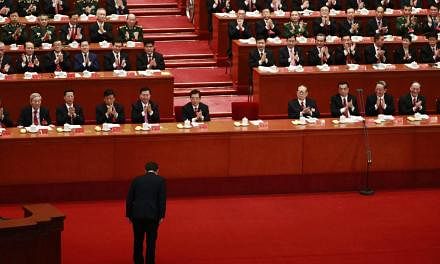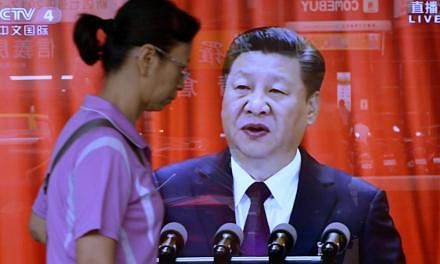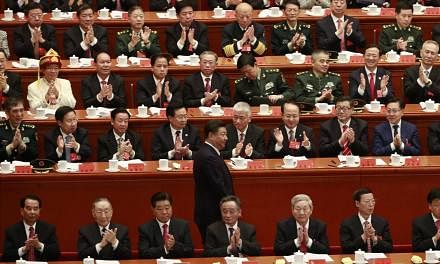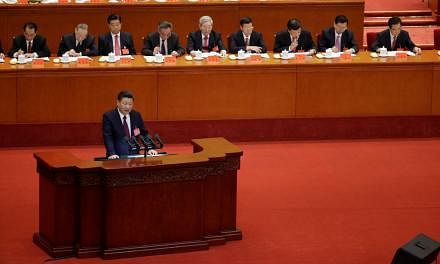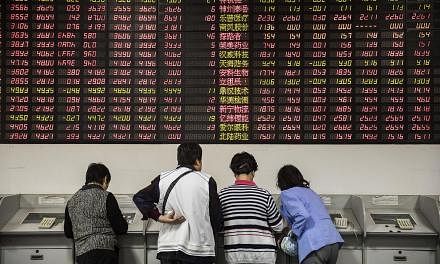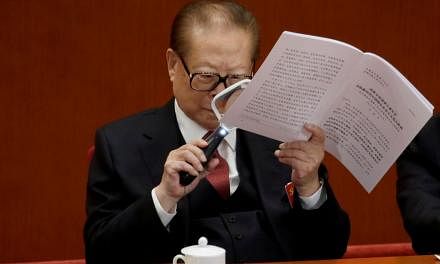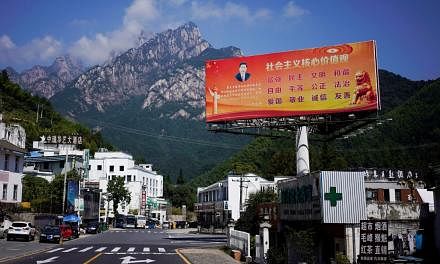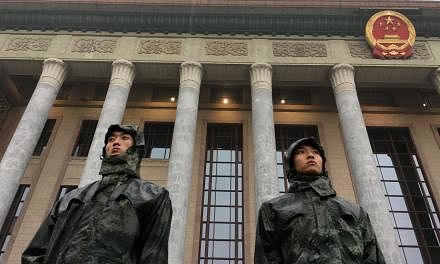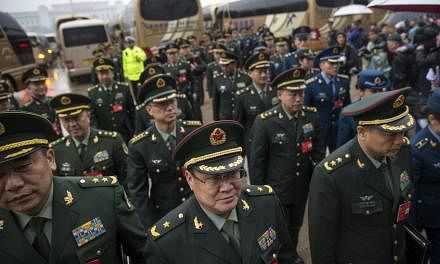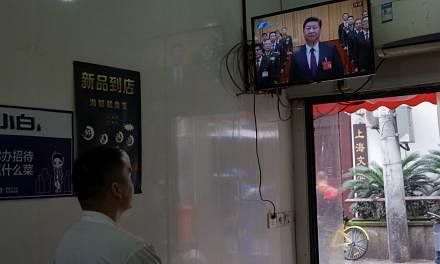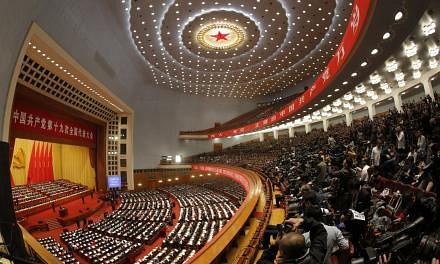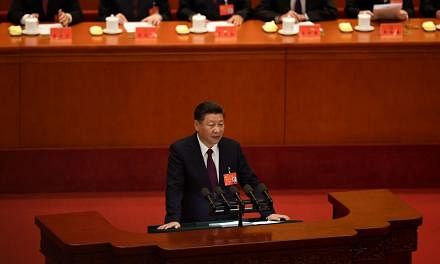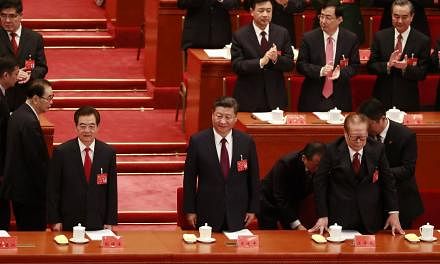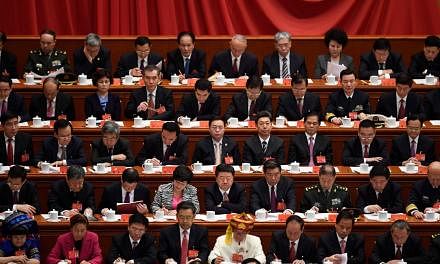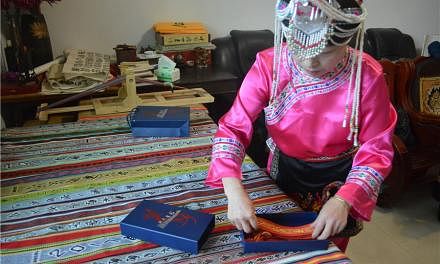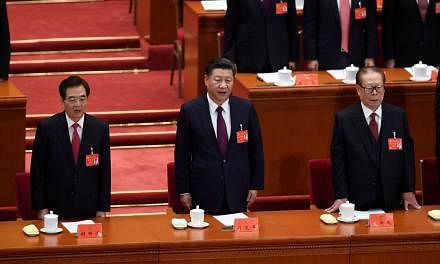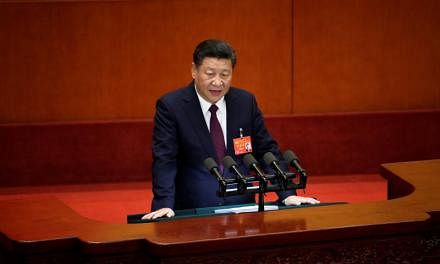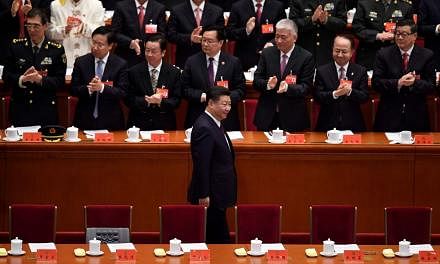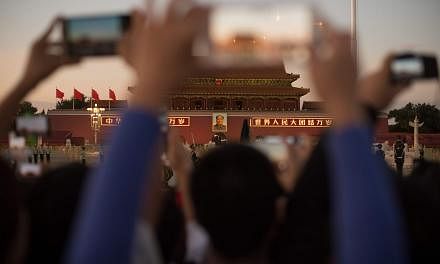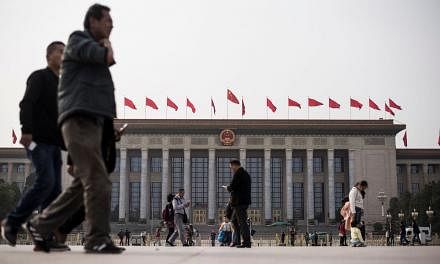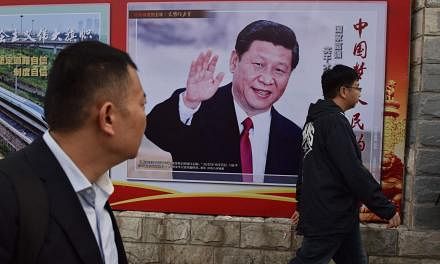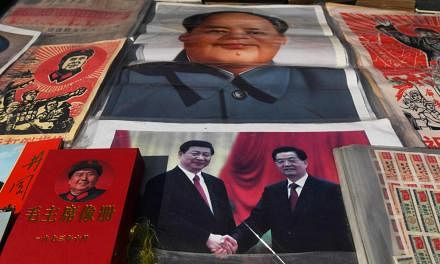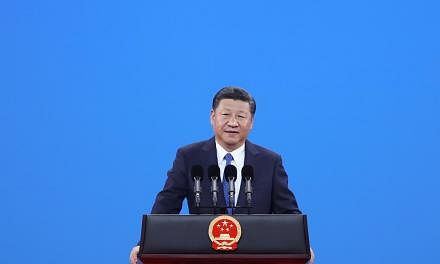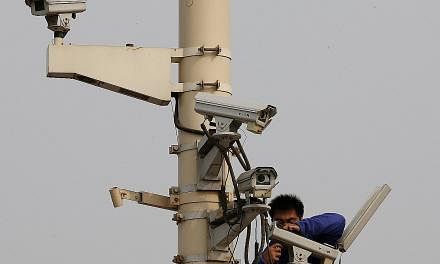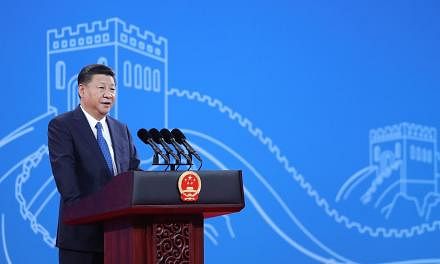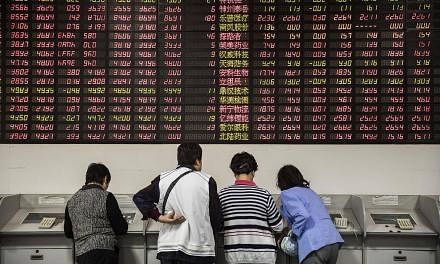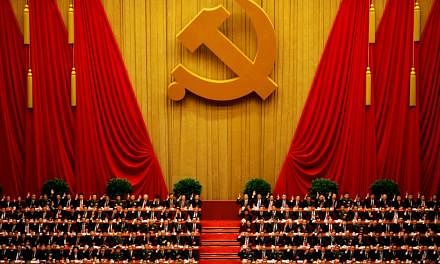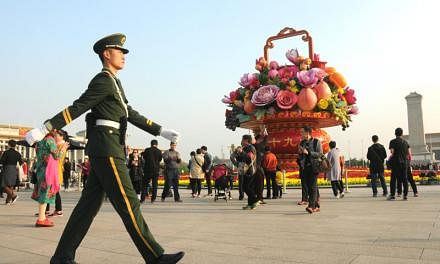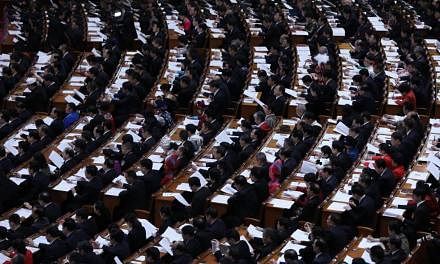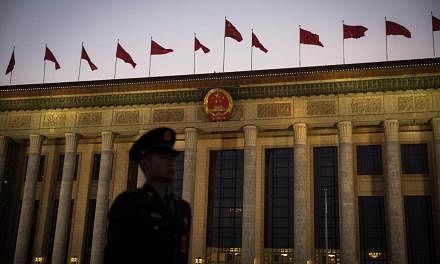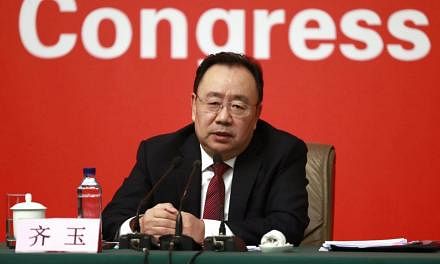BEIJING • China is tightening security for next month's Communist Party congress, cancelling police leave in Beijing, limiting tourism to Tibet, and clamping down on the spread of political rumours.
Thousands of policemen from other provinces have been sent to the Chinese capital, a source with direct knowledge of the matter said. Another source said all police leave in Beijing had been cancelled starting from early this month.
Beijing Communist Party chief Cai Qi on Wednesday asked the city for "120 per cent" effort to ensure safety for the twice-a-decade congress, the official Beijing Daily said. "We must hold the line for social control, eliminate all destabilising factors, hold the line for cyber security, and resolutely crack down on political rumours and harmful news," Mr Cai said.
The city's largest market for metal building materials has been relocated to Hebei province, taking with it more than 10,000 industry workers and stall owners, said Beijing Daily. The market's unceasing growth had created a "messy environment" where migrants congregate, the paper said, without mentioning the crucial party gathering.
Many of the tightened security measures target migrants, with identity checks at subways and patrols outside government ministries to ensure any petitioners from out of town are rounded up at once, should they attempt to make a scene.
Some 2,000 delegates will converge on Beijing for the congress, staying at hotels across the city, and security will only get tighter as its opening nears, meaning any protests will be quickly shut down.
China's ongoing clampdown on cyberspace has seen WhatsApp, the messaging service run by Facebook, periodically unavailable in the past few weeks, while certain gifs using images of President Xi Jinping cannot be posted to group chats on messenger app WeChat.
New limits have been placed on discussion in private group chats. Rules were also released earlier this month to make firms and group owners accountable for breaches of content rules. On Monday, China's cyber watchdog slapped the largest possible fines of 100,000 yuan (S$20,800) on tech giants Tencent Holdings, Baidu and Weibo for failing to censor online content.
Deterrent measures are far from restricted to just keeping Beijing secure. An official at China International Travel Service said the government had told it that no foreigners are allowed to visit Tibet from Oct 18 to 28 because of the congress. Three other travel agencies confirmed there was a ban, which would be lifted only late next month. Tibet is always sensitive for Beijing, given the opposition to Chinese rule that exists within the Tibetan community. Even in normal times, foreigners need permission to visit.
The entertainment industry is also not spared. Chinese film director Feng Xiaogang last week said tomorrow's release of his latest film, Youth, had to be delayed. He gave no explanation. But a source with ties to the censors told Reuters the authorities had deemed it risky to screen the film before the congress, as it is partially set during China's 1979 war with Vietnam - a touchy subject.
In and around Beijing, efforts have been ramped up to ensure the skies remain blue during the congress and not polluted by the city's notorious smog. The city of Handan, near Beijing, has ordered steel mills to halve output a month earlier than the usual mid-November cutbacks aimed at curbing air pollution, said the media.
REUTERS
